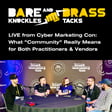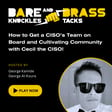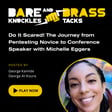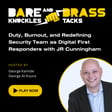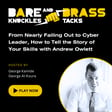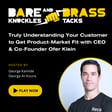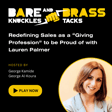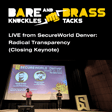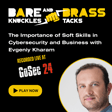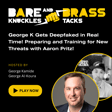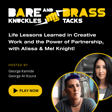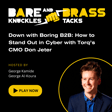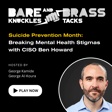
How to Scale Success in Cyber with Serial Entrepreneur Stuart McClure (Recorded Live at GoSec 2024)
How do you know what’s a winning idea? Serial cyber entrepreneur Stuart McClure sat down with us live at GoSec 2024 to record his thoughts on go-to-market strategies.
Stuart was the founder of Cylance, the fastest company to record $100M in ARR, and he’s the lead author on a book about hacking techniques. In short, he talks the talk and walks the walk.
In this episode:
💡How to tell a genius idea from just a neat feature
🤝How to build and scale without repeating the same tired playbook
🧠 How a background in psychology equipped him with the skills for business
⚡️Why being able to make fast decisions is so important
This episode was produced with the support of GoSecure.
————————
🏆We’ve been nominated as Podcast of the Year for the SANS Difference Maker awards! Voting is open now through Oct 4. 🗳️ Vote for the show here: https://www.sans.org/about/awards/difference-makers/
Thank you for your support!

